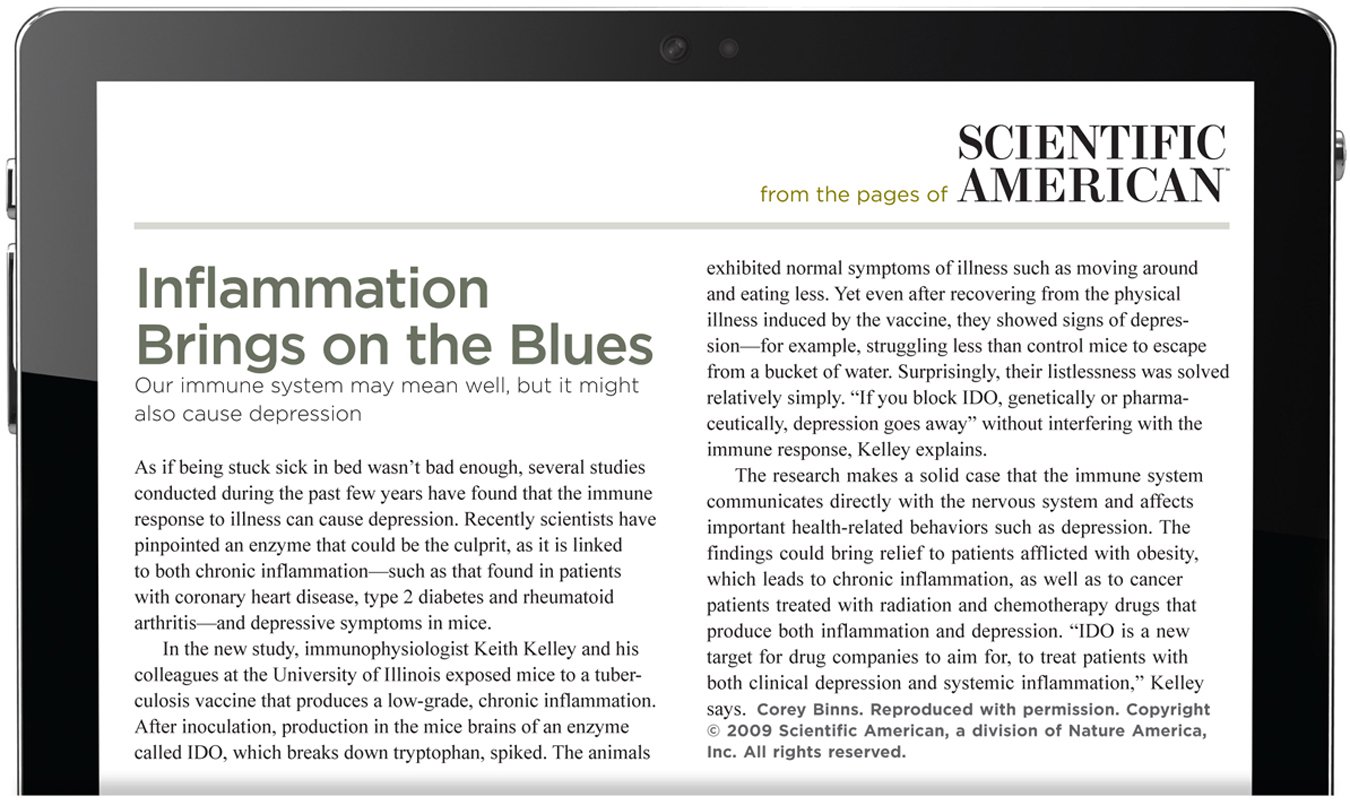Chapter 1. Chapter
Article
From the Pages of Scientific American
Inflammation Brings on the Blues

Click the image to enlarge. Click "Next" to continue.
1.1 Quiz
1. Kelley and colleagues’ work on inflammation and its relationship to depression find that the link between the two comes in the form of:
| A. |
| B. |
| C. |
| D. |
2. How did the study discussed in the excerpt create inflammation in its experimental animals?
| A. |
| B. |
| C. |
| D. |
3. Which statement accurately describes the experimenters’ evidence that inflammation led to the production of a substance that in turn led to depression?
| A. |
| B. |
| C. |
| D. |
4. Kelley and his colleagues believe that the discovery of this inflammation-related substance’s effect on depression is important because:
| A. |
| B. |
| C. |
| D. |
5. One of the theories of depression that might be impacted by Kelley and colleagues’ work is _____, which suggests that depression arises from a feeling that people can’t control negative outcomes.
| A. |
| B. |
| C. |
| D. |